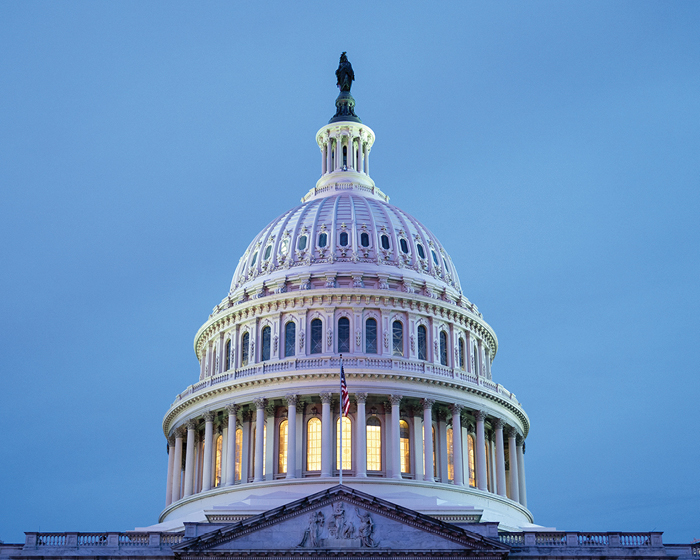Key Takeaways
- Congress ended the shutdown this week with an agreement to fund agencies for three months.
- There is still uncertainty about whether lawmakers will be able to pass full appropriations bills.
- Enrollees in state exchanges could face a premium hike unless Congress acts before the end of the year.
- Secretary Bessent's tax moves in private sector under scrutiny.
- OBBBA Tips Deduction becomes fodder for upcoming midterms.
The longest shutdown in American history is over. But the uncertainty about the future continues.
Congress on Wednesday night passed a measure funding most of the government through Jan. 30, officially bringing the shutdown to a close, 43 days after it began. That legislation fully funds a few government departments through the next fiscal year, but most agencies face the prospect of another funding lapse in only a few months. While lawmakers hope to pass the full slate of appropriations bills by that time, the contentious atmosphere in Congress may make that a heavy lift.
The final agreement to end the shutdown, passed over the objections of Democratic leaders in the House and Senate, does not include any tweaks to the enhanced Affordable Care Act’s tax credits. Those enhancements are set to expire at the end of the year, and Democrats had demanded that any legislation to continue government funding include an extension. Without the enhancement, premiums on the statewide ACA exchanges are set to increase, although there is some disagreement about how much those increases are due to the expirations.
What Democrats did secure was a commitment from Senate Majority Leader John Thune to hold a vote on an extension, likely sometime in December. Whether or not that vote is successful, many Republicans say they want to work with Democrats on the issue. Proposals for a fix include everything from a new income cap, to President Donald Trump’s idea of giving money to enrollees directly, rather than having it available through insurance plans. (This could include pre-funding tax-favored health savings accounts or flexible spending accounts.)
In a short period when Congress has a lot to juggle, lawmakers may not have the bandwidth to work on a full overhaul of the healthcare system. But there’s at least some hope that enough members of both parties want to reach across the aisle and find a way to mitigate a sharp spike in insurance premiums.
Recent Tax Pieces:
What’s Next for Obamacare Fight After Government Shutdown Ends – Jonathan Tamari and Lillianna Byington, Bloomberg Tax ($):
The tax credits, which help lower premium payments for ACA enrollees, were temporarily increased during the Biden administration, and Congress removed an income limit so more people could benefit. Those enhancements expire at year’s end, setting up the debate over what happens next.
The I.R.S. Tried to Stop This Tax Dodge. Scott Bessent Used It Anyway. – Andrew Duehren, The New York Times:
The memo, viewed by The New York Times, was based on a review of Mr. Bessent’s tax returns and also indicated that Mr. Bessent paid Social Security taxes in full.
Nevada Dems, GOP battle over ‘no-tax-on-tips’ – Danny Nguyen, Politico:
And they note that the tax break will lapse in three years unless Congress extends it, while the cuts to public benefits would be permanent.
“D.C. Republicans are giving temporary crumbs to working families,” said Lindsay Reilly, a spokesperson for the Democratic Congressional Campaign Committee, the party’s House campaign arm. “Meanwhile, millions of families are at risk of losing their health care, hundreds of hospitals could close, and countless Americans could lose their jobs — all to pay for permanent tax cuts for billionaires.”
What’s in Store for the Johnson Amendment? – Marie Sapirie, Tax Notes ($):
Trump Pulls Korb’s IRS Top Lawyer Nomination After Loomer Blast – Zach C. Cohen, Bloomberg Tax ($):
But Laura Loomer, a political activist aligned with Trump, questioned Korb’s party loyalties. Citing reporting and an Insight published in Bloomberg Tax, she challenged Korb’s “by-the-book” style and criticism of whistleblowers.
She also lambasted his political donations to Democrats and pointed out Sen. Sheldon Whitehouse’s (D-R.I.) support for his nomination in committee.
Make a habit of sustained success.



